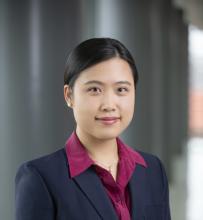The Department of Applied Mathematics weekly seminar is given by scholars and researchers working in applied mathematics, broadly interpreted.
Title: Towards Hierarchical Flow Matching for Generative Modeling
Abstract: Flow matching has gained significant attention due to its ability to generate high-quality data and due to its simulation-free learning of data distribution. For this, it uses samples which interpolate between source distribution samples and data points to learn a neural ordinary differential equation (ODE) which drives samples from the source distribution to the target data distribution. In this talk, we discuss the multimodal velocity distribution induced by linearly interpolating between source samples and data points, and address the following questions: (1) Is it possible to capture the velocity distributions at each time-space-location? (2) Are there any benefits to capturing multimodal velocity distributions as opposed to `just' capturing their means as done by classic flow matching? To answer the questions, we introduce hierarchical flow matching. It hierarchically couples multiple ODEs and defines a time-differentiable stochastic process that generates a data distribution from a known source distribution. Each ODE resembles the ODE that is solved in a classic rectified flow, but differs in its domain, i.e., location, velocity, acceleration, etc. Unlike the classic rectified flow formulation, which formulates a single ODE in the location domain and only captures the expected velocity field (sufficient to capture a multimodal data distribution), hierarchical flow matching models the multimodal random velocity field, acceleration field, etc., in their entirety. We will show compelling results on synthetic data as well as natural images.
Bio: Zhizhen Zhao is an Associate Professor and William L. Everitt Fellow in the Department of Electrical and Computer Engineering at the University of Illinois at Urbana-Champaign. She joined the University of Illinois at Urbana-Champaign in 2016. From 2014 to 2016, she was a Courant Instructor at the Courant Institute of Mathematical Sciences, New York University. She received the B.A. and M.Sc. degrees in physics from Trinity College, Cambridge University in 2008, and the Ph.D. degree in physics from Princeton University in 2013. She is a recipient of Alfred P. Sloan Research Fellowship (2020). Her research interests include computational imaging, cryo-electron microscopy single particle analysis, generative AI, and AI for Science
